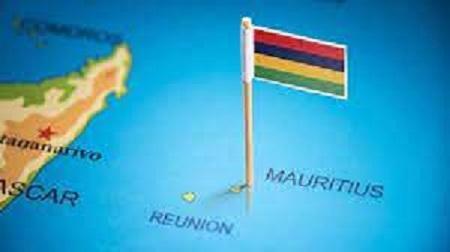Africa-Press – Mauritius. Africa has been given all sorts of names for all sorts of reasons. Once known as the Dark Continent it was also treated as the “Hopeless Continent” by the Economist magazine.
The same magazine revised its opinion a decade later to dub it as the “Rising Continent”. In November 2013, the influential President of the African Development Bank, Mr.
Donald Kaberuka, raised the African profile by portraying Africa as “the sleeping giant which is on its way, and the African trajectory continues upward, with a young and dynamic population” .
Much of this positive image is due to improved governance. Commenting on the 2013 Ibrahim Mo Index of African Governance which examined trends back to 2000, Mr.
Ibrahim Mo recognized that these “shine a light on the state of governance across the continent and the important challenges we face over the coming decades.
The index shows us that Africa has achieved progress in many key areas. It reveals that 94% of people on the continent live in a country that is better governed now than 13 years ago. Impressive gains have been made in terms of sustainable economic opportunity, gender, health and education”.
Africa is a vast territorial expanse consisting of mainland Africa, its offshore island countries (including the Indian Ocean Islands of Mauritius, Madagascar, Seychelles and Comoros) as well as the immense exclusive marine zones of its coastal and island countries.
With a market of one billion people, Africa opens up vast horizons and opportunities for industries and businessmen. New infrastructure, connectivity networks and new technology continue to spread out throughout the continent.
Reliable sources estimate the African GDP to be between USD 2 to 2.6 trillion by 2020, with a consumer base amounting to over $1.4 trillion. It is forecast that Africa will grow at an average annual rate of 6% for the next few years to 2020.
For all these above mentioned reasons, there have been manifestations of exuberant interest from all over the world to do business and invest in Africa. Chief among these have been Brazil, Russia, India and China. These are all members of the BRIC group.
South Africa accounting for one third of Sub-Saharan African economy and being regarded as an influential member country of Africa was invited in 2010 to join the enlarged BRICS group as it was felt that “the strategic interest of the BRICS in Africa will strengthen the position of South Africa as a leading regional power and a gateway for other BRICS countries to the African market”.
The motivations of the BRICS to engage in Africa stem basically from their interests in the continent’s reserve of resources of all sorts and in particular the natural resources.
Equally attractive for them have been the prospects that they can tap on the vast potentials of Africa’s agriculture which remains this far under-exploited. BRICS know that they can turn the situation positively in terms of scope, variety, diversification, productivity, returns to scale, etc.
as they are willing to replicate their time-tested successful technologies and best practices and make the best use of their collective knowledge and experiences. They know that they can reap yet richer dividends as they are able to bring in massive investment capital into Africa.
Brazil in particular has high comparative advantages and technological advance in both trading and adding value in the agricultural sector as it remains to-date the best in terms of ensuring vertical integration in this sector.
India on its part is very strong in promoting and empowering SMEs. As regards to natural resources BRICS are pretty pervasive in Africa. Brazil and China are present in Angola, Democratic Republic of Congo, Nigeria and Sudan, in exploring and exploiting gas, oil and mineral resources.
India buys huge quantities of oil from Nigeria and gets its supplies of gold from South Africa. Having suffered from the recession in the developed countries, BRICS have come to learn their lessons and have wisely decided to minimize their risks and diversify their markets.
Africa comes in handily for these purposes and especially as market for their consumer goods while at the same time targeting niche segments of a rising African middle class of more than 300 millions.
Members of BRICS have been individually assigning substantial amount project finances and trade lines of credit for African countries. BRICS with the membership of South Africa will now funnel trade, development and project finances into Africa using a novel financing approach so far as the deepening of integration is concerned.
It will thus finance specific intraregional projects like the North Africa-South Africa transport corridors and other multi-country infrastructure and industrial projects.
BRICS have also announced the proposed launching of their own development bank. According to BRICS leaders, this new Development Bank will boost development funding and project investments in Africa.
Considering the importance and impact of the new “BRICS” engagement in Africa, it becomes imperative for us to review our strategies as to how and where Mauritius will pitch itself in its dealing with Africa.
Equally important is to know how we make best use of our membership of the African regional and sub regional blocks as well as our privileged relationship with BRICS themselves and with other development partners like EU, US and Japan who also have strong trade and business interests in Africa.
A pertinent question then is: how to craft our own business model in Africa? Being a small island economy country, we need the Africa more than ever before.
The 53 countries of Africa have their own specificities and peculiarities, though there are some identifiable commonalities. We can’t obviously go all over Africa at once.
Nor do we have big cheque books to use to ease our market entries. Our competitive and comparative advantages are probably related to a few sectors and clusters.
We need to identify these and organize ourselves probably better through strategic alliances; including with BRICS countries. . . We need to seriously look at different scenarios and options.
All these challenges should be addressed as we get more and more determined to engage in Africa. It would however be remiss on our part to ignore the number of successful Mauritius ventures and enterprises in Africa.
Our businessmen and entrepreneurs have been successful sugar cane plantations in a few African countries as also in the agro-industries, textiles, ICT, tourism, logistics and transport, free port operations, fisheries, breweries and human resource development and capacity building.
Our people have acquired special competence in coping with the high level of procedures and practices in major sectors like the banking, financial, insurance, accounting, auditing, consulting, procurement and sourcing and as well as in telecommunications.
This has allowed them to successfully take a reasonably good share of the market despite competition coming from lot many foreign nationals operating in Africa.
We certainly owe all these above fruitful developments to the vision and support of government but also to the vision and hard work of industry captains and other entrepreneurs. More will need to be done to encourage and support those of our entrepreneurs who have vision and projects but who lack the financial clout.
In particular there has to be adequate share for the SMEs who can at least work conveniently in a system of sub-contracting linkages within the value chains created by the more resourceful corporate and entrepreneurs.
As competition intensifies in Africa, entrepreneurs should look for joint venture, private equity and venture capital routes in areas of core competences where others before them have successfully performed.
But they should also try to enter new trade and businesses opportunities including agribusiness, energy, health, infrastructure, human resource development, capacity building, security, ICT, EPC, banking and finance.
Our embassies in Africa, our roving ambassadors and consulates are there to support and facilitate. About a year and a half ago, the Mauritius Africa Business Club was founded by some of the most enterprising of our industry captains operating in Africa.
They are reported to be helping corporate, SMEs and individual entrepreneurs who seek their support and guidance in going into Africa. More like these initiatives are welcome.
It is also reported that a few business partnership missions have been organized under the aegis of the BOI with a view to helping delegation members to discover the latest business opportunities and options and by meeting potential business partners in Africa.
The BOI seems to have facilitated greater interaction of delegations with government officials, corporate and counterparts on the best prospects for investment.
It is hoped that these special networking events will work in the direction of closing new business deals and partnerships as well in putting Mauritius and Mauritian entrepreneurs-big and small alikemore and more on the business and trade orbits in Africa.
I will end by reproducing Mr. Kabureka’s recent reflections: “Our toolbox is limited and we will need to innovate. We must aim high, be persistent, join hands across borders, be flexible, practical, be ready to learn and adjust at each juncture. This way we will get it right.”
For More News And Analysis About Mauritius Follow Africa-Press







